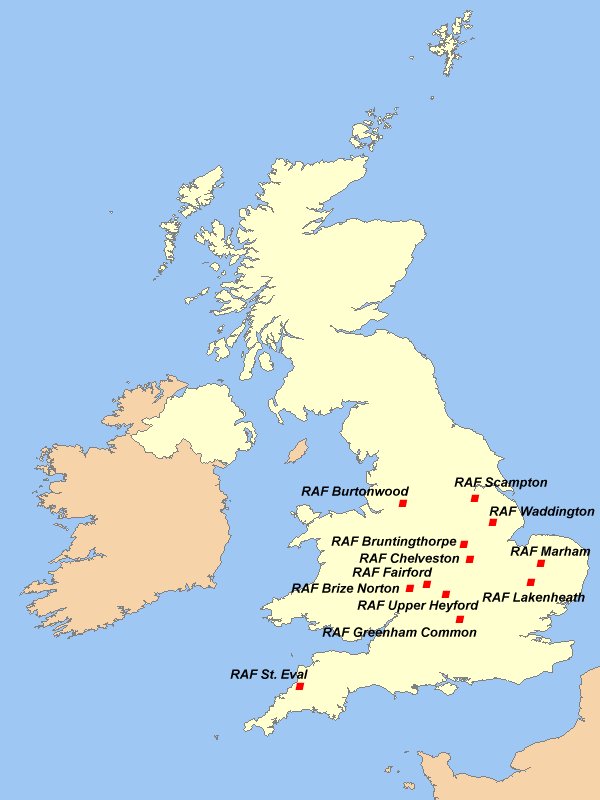UK Living Costs Unveiled: Informative Insights
When it comes to understanding the true cost of living in the United Kingdom, reliable information can be hard to come by. Whether you are a new resident or a student planning to study in the UK, having a comprehensive understanding of living costs is essential for budgeting and making informed financial decisions. In this article, we aim to shed light on the various aspects of UK living costs, providing valuable insights that will help you navigate the intricacies of expenses while maintaining a neutral tone throughout. From accommodation and groceries to transportation and healthcare, we will explore the significant factors contributing to the overall cost of living in the UK, ensuring you are equipped with all the necessary information to make the right choices for your financial well-being. Stay informed and prepared for your journey in the UK with our insightful analysis on UK living costs.
UK Housing Costs: An In-depth Analysis of the Expenses Involved
When it comes to navigating the complexities of UK housing costs, a thorough analysis is essential to understand the various expenses involved. From rent and mortgages to utilities and council tax, it’s crucial to have a comprehensive understanding of the financial implications of housing in the UK. Let’s dive into each aspect and highlight the key details that define these expenses.
Rent and Mortgages: These are the primary costs associated with housing in the UK. Rent is typically paid monthly to a landlord, while mortgages are monthly payments towards owning a property. Both costs vary significantly depending on factors such as location, property size, and market conditions.
- Utilities: Electricity, water, gas, and internet are vital services needed for any household. Utilities comprise a significant percentage of a monthly housing budget. It’s important to carefully consider energy-efficient alternatives and compare providers to optimize costs.
- Council Tax: Charged by local authorities, council tax is calculated based on the value of your property and the area you live in. It funds local services like rubbish collection, street cleaning, and schools. The amount varies depending on the property band it falls under and can fluctuate annually.
- Insurance: Protecting your home and belongings is crucial. Building insurance covers the structure of your property, while contents insurance shields your belongings from theft, damage, or loss. The costs vary depending on the level of coverage you require.
Other expenses may include maintenance and repair costs, which can arise unexpectedly. It’s recommended to set aside a portion of your budget for these unforeseen expenses to avoid potential financial strain. Furthermore, additional costs such as parking fees, housing association fees (for shared ownership properties), and service charges (for flats or apartments) may apply depending on your housing arrangement.
Understanding the intricacies of UK housing costs is vital for effective financial planning. By budgeting wisely and comparing different providers, one can mitigate expenses and make informed decisions. It’s important to regularly review your housing costs and adapt to changes to maintain financial stability in this ever-evolving sector.

Transportation Expenses in the UK: A Comprehensive Breakdown
Understanding and managing transportation expenses is crucial for individuals and businesses in the United Kingdom. This comprehensive breakdown provides valuable insights into various modes of transportation and the associated costs. By gaining a deeper understanding of these expenses, you can make informed decisions that positively impact your budget and travel plans.
1. Public Transportation:
Public transportation is a popular and cost-effective option for commuting and traveling within the UK. The fares for buses, trams, trains, and the famous London Underground vary depending on factors such as the distance traveled, mode of transport, and off-peak or peak hours. Utilizing weekly or monthly travel cards can offer significant savings for regular commuters. In addition, various transport apps provide real-time updates and routes to assist you in streamlining your journey.
2. Private Vehicles:
For those who prefer the convenience and flexibility of private vehicles, it’s important to consider the expenses involved. Fuel costs, vehicle maintenance, insurance, and road tax are key factors that impact the overall expenditure. By choosing the most fuel-efficient vehicles, regularly maintaining them, and exploring competitive insurance options, long-term savings can be achieved. It’s worth noting that congestion charges may apply in certain cities and that parking fees can vary widely across the country.
3. Alternative Modes of Transportation:
The UK also offers alternative transportation options that have gained popularity in recent years. Car-sharing services like Uber, Bolt, or local taxi firms provide an affordable and hassle-free way to get around. Additionally, bike-sharing schemes and rental services offer a greener and healthier means of transportation for short distances. Considering these alternatives can help diversify your transportation options and reduce costs in certain situations.
By comprehensively analyzing transportation expenses in the UK, you can optimize your travel plans and manage your budget more effectively. Combining the convenience of public transportation, the flexibility of private vehicles, and the benefits of alternative modes of transport can significantly impact your overall expenditure. Stay informed, compare options, and always prioritize your personal preferences and budget constraints to make the most of your travel experiences.

Understanding Education Costs in the UK: Insights and Recommendations
Insights on Education Costs in the UK
When it comes to education in the UK, it isn’t just about the quality of the institutions or the courses offered, but also about the costs involved. Understanding the expenses related to obtaining an education here is crucial for students and their families alike. In this section, we will provide you with valuable insights on the various factors that contribute to education costs in the UK, enabling you to make informed decisions about your academic journey.
1. Tuition Fees: Tuition fees can vary significantly depending on the course level, location, and university reputation. UK universities charge different rates for domestic and international students. It is important to carefully research and compare tuition fees to ensure you are getting the best value for the education you desire.
2. Accommodation: The cost of accommodation can be a significant part of education expenses. Students have the option to live on-campus or off-campus, and different cities have varying costs of living. Consider factors like shared accommodations, distance from the university, and transportation expenses when budgeting for your education.
3. Scholarships, Grants, and Funding: Many universities in the UK offer scholarships and grants based on academic excellence, sports achievements, or financial need. It is highly recommended to explore these opportunities to mitigate the financial burden. Additionally, external organizations and government agencies also provide funding options that could significantly reduce education costs.
4. Living Expenses: Beyond tuition and accommodation, students must account for other living expenses such as food, transportation, study materials, and personal expenses. These costs can vary greatly based on individual lifestyle choices. Creating a realistic budget and considering these factors will help manage your finances effectively during your time in the UK.
By understanding the key elements and associated costs of education in the UK, you can plan your academic journey better and make informed decisions about your educational investment. With diligent research and proper financial planning, you can embark on a rewarding learning experience without unnecessary financial stress.

Revealing UK Healthcare Expenses and Essential Tips on Managing Them
As we navigate the complexities of the UK healthcare system, understanding the associated expenses and learning effective management strategies are crucial. Here, we uncover the various costs associated with healthcare in the UK and provide you with essential tips for managing them.
1. NHS Services and Costs
The National Health Service (NHS) in the UK provides free healthcare services to residents, but certain treatments, prescriptions, and dental care may involve charges. Stay aware of these potential costs:
- Prescription Charges: If you are not exempt, you may have to pay a set fee for each prescribed medicine. To save money, consider purchasing a prescription prepayment certificate if you require multiple medications.
- Dental Care Costs: While basic dental treatments are free for most UK residents, some services like cosmetic dentistry may incur charges.
- Eyecare Costs: Sight tests are typically free, but you may incur expenses for glasses or contact lenses. Carefully review your eligibility for help with these costs.
2. Private Healthcare Considerations
Opting for private healthcare services in the UK offers benefits such as shorter waiting times and more specialized treatments; however, the costs can be substantial. Here are some key factors to take into account:
- Insurance Options: Consider private health insurance as it can cover a portion or the entirety of your medical expenses. Thoroughly research the available policies to find the one that best suits your needs and budget.
- Compare Providers: Research different private healthcare providers to ensure you receive the best value for your money. Compare prices, treatments offered, and reputation before making a decision.
- Out-of-Pocket Costs: Even with private healthcare, there may be additional costs not covered by insurance, such as consultations, medications, or follow-up treatments. Budget accordingly to avoid unexpected expenses.
3. Effective Tips for Managing Healthcare Expenses
Managing healthcare expenses can help ensure your financial well-being while prioritizing your health. Consider implementing these practical tips:
- Regular Health Check-ups: Preventive measures often prove more cost-effective in the long run. Attend routine check-ups to identify potential health issues before they escalate, reducing the need for extensive and expensive treatments.
- Utilize NHS Benefits: Familiarize yourself with the NHS benefits and exemptions you may qualify for. This knowledge can significantly reduce your out-of-pocket expenses.
- Comparison Shop: When it comes to private healthcare or non-NHS services, remember to compare prices and providers, ensuring you receive the best quality care at a fair cost.
- Financial Planning: Develop a budget that includes allocating funds for healthcare expenses. An emergency healthcare fund can provide peace of mind during unforeseen medical situations.
By shedding light on UK healthcare expenses and equipping you with essential management techniques, we hope to empower you to make informed decisions about your health and finances.

UK Grocery Shopping: Unveiling the Costs and Money-Saving Strategies
When it comes to grocery shopping in the UK, understanding the costs and implementing money-saving strategies can make a significant difference in your budget. With a plethora of choices available, it’s crucial to stay informed and explore savvy solutions that will help you save those hard-earned pounds. Here’s a closer look at the costs involved and some handy tips to help you stretch your shopping budget:
- Compare prices: Before filling up your shopping cart, take a moment to compare prices from different supermarkets. Websites and mobile apps come in handy for this task. Identifying stores with competitive prices can save you a considerable amount of money over time.
- Plan your meals: Creating a weekly meal plan not only helps you organize your schedule but also prevents impulse purchases. By preparing a list of items required for your planned meals, you can wisely shop without adding unnecessary expenses. Additionally, you can reduce waste by using leftovers for future meals.
- Look out for special offers and discounts: Keep an eye on promotions, discounts, and loyalty programs offered by supermarkets. By taking advantage of these deals, you can slash your grocery bill substantially. Don’t forget to sign up for store newsletters or follow their social media channels to stay updated on the latest offers.
Furthermore, it’s essential to shop mindfully by being conscious of your needs versus wants. Avoid unnecessary splurges on items that aren’t on your list. Additionally, consider the quality and quantity of products you purchase. Often, buying in bulk or opting for store-brand items can lead to significant savings over time without compromising on quality. By adopting these strategies, you can navigate the world of UK grocery shopping while minimizing your expenses and maximizing value.

Recreation and Leisure Costs in the UK: A Detailed Overview and Insider Tips
When it comes to recreation and leisure activities in the UK, there is an abundance of options to suit every taste and budget. From exploring historic landmarks to enjoying thrilling theme park adventures, the UK offers a diverse range of activities for everyone. However, it is essential to consider the costs associated with these experiences to ensure you make the most of your time and budget while indulging in leisure activities.
Here is a comprehensive breakdown of the different types of recreational activities in the UK, along with their associated costs:
- Cultural Attractions: Museums, art galleries, and historical sites are often affordable or even free to visit. However, some popular exhibits and special events may have admission fees, usually ranging from £5 to £20 per person. Utilize discounted or combination tickets to save money.
- Outdoor Pursuits: Nature lovers can explore the UK’s breathtaking landscapes through hiking trails, coastal walks, and national parks. Entry to these areas is often free, with only minimal parking fees. Camping and renting recreational equipment may cost between £10 and £30 per night, depending on the location and facilities.
- Entertainment and Shows: West End musicals, comedy gigs, and live performances are renowned in cities like London. Ticket prices vary widely based on popularity and seat location, ranging from £20 for off-peak shows to £150 for prime seats at in-demand events.
- Sporting Activities: From football matches at iconic stadiums to golfing on renowned courses, sports enthusiasts have numerous opportunities to enjoy their favorite activities. Prices for attending matches or participating in sports vary significantly, ranging from £10 for lower division games to hundreds of pounds for exclusive sporting experiences.
Remember that buying tickets online or in advance often offers discounts compared to on-the-spot purchases. Additionally, keep an eye out for special promotions, student discounts, and off-peak offers to optimize your UK leisure experience while reducing costs.
Insights and Conclusions
In conclusion, understanding the living costs in the UK is crucial for anyone planning to relocate, study, or work in this diverse and vibrant country. By shedding light on various key aspects, we hope to have provided you with informative insights that can assist you in making well-informed decisions.
From housing expenses and utility bills to transportation costs and grocery prices, we have outlined the essential components that contribute to the overall cost of living in the UK. While certain areas, such as London, may demand a higher budget, it is important to consider the regional variations that exist across the country.
Moreover, we have discussed how personal lifestyle choices, such as entertainment and dining out, can significantly impact one’s expenditure. By setting realistic expectations and properly budgeting for these discretionary expenses, individuals can strike a balance between enjoying their time in the UK and managing their financial resources.
Additionally, we have emphasized the availability and importance of financial support systems, such as grants, loans, and scholarships, which can aid individuals in mitigating the financial burden associated with living costs. It is crucial to explore these options and understand the eligibility criteria to ensure a more affordable and sustainable experience in the UK.
Furthermore, we have highlighted the potential savings that can be made by utilizing local deals, discounts, and public transport options. Being mindful of these opportunities not only promotes financial stability but can also enhance the overall experience of living in the UK.
Lastly, we encourage individuals to conduct thorough research and seek guidance from experts or those who have firsthand experience living in the UK. This will help potential residents gain a deeper understanding of the country’s living costs and make informed decisions based on their specific circumstances.
In conclusion, navigating the living costs in the UK can be challenging, but with the right knowledge and careful planning, it is certainly manageable. By being aware of the various factors that contribute to these costs, individuals can better prepare themselves and make the most of their time in this diverse and exciting nation.





